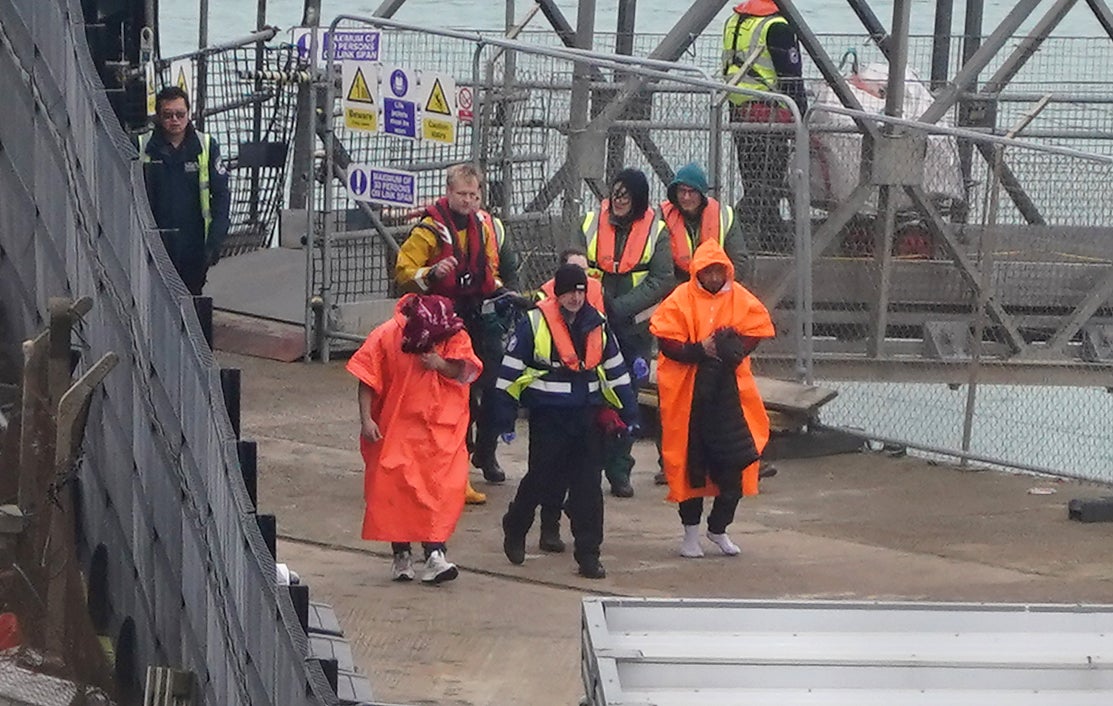Why Turkey has dealt another blow to Rishi Sunak’s ‘stop the boats’ plan
Could an end to deportations to Turkey be an even bigger headache for the prime minister, asks Sean O’Grady


Rishi Sunak’s promise to “stop the boats” has suffered another setback. The Home Office has declared Turkey an unsafe country for the purposes of asylum, meaning deporting anyone there could risk their life, in breach of domestic and international human rights law.
It is not the biggest setback he’s faced – everything to do with the Rwanda scheme has been far more embarrassing and damaging – but it’s undoubtedly an uncomfortable end to a difficult week. Questions about the asylum system as it has worked under successive Conservative governments have also been raised by the case of the chemical attack suspect, Abdul Ezedi. So on an important issue where the government hopes to gain some political advantage over Labour, the headlines continue to be all about chaos and failure.
What has gone wrong?
Home Office officials have determined that they shouldn’t be sending people back to Turkey. Although it is a democracy, President Erdogan’s government operates repressive policies towards its political opponents and Kurdish minorities. Turkey is “over-zealous” in its anti-terrorism laws and conducts unfair trials, says the Home Office. There are also allegations of torture.
Why are Home Office officials making policy?
They aren’t, but they do implement policy and advise on it, taking into account the safety and legality of policy set by ministers. They are independent civil servants working under codes of conduct set by the government. Aside from that, they know that any attempt to implement a returns scheme with Turkey would be subject to judicial review just as the Rwanda plan was (and struck down as unlawful by the Supreme Court last November) so if they didn’t kill it, judges would.
How can it be fixed?
It is not easy to see how. Sunak could repeat what he did when the Supreme Court declared the Rwanda plan unlawful: negotiate safeguards with Erdogan and push a bill through parliament asserting in law that Turkey is a safe country for the purposes of asylum. But that would run into the same obstacles as his latest Rwanda legislation.
Does it matter?
About 3,000 Turkish nationals arrived in Britain by small boat last year; it represents the third-largest nationality, and more than double the number from the previous year. So far in 2024, 389 Turkish asylum seekers have made the journey, compared with 610 from Afghanistan and 408 from Iran (out of a total of about 7,000). In the context of total annual legal migration under the points-based system of 672,000 in 2023, even the total numbers of irregular migrants of all kinds are small: about 52,000. But it is the thing that exercises some sections of the electorate most.
What does the Turkey ruling do for the PM’s credibility?
Compared to the intense attention paid to the Rwanda scheme, on which Sunak seems to have staked his premiership, it’s not such a terrible blow. However, that is very much because all the other return schemes – Albania, Bulgaria, Georgia, France, and Italy – are running more smoothly and enjoy a lower profile than the problematic Rwanda plan.
But in its small way, the collapse of the Turkey scheme confirms the prime minister hasn’t yet got a grip on migration as an issue, let alone stopped the boats, and thus has failed in one of the five key pledges made in January last year. He pleads that small boat arrivals are down by a third (true) and that the Rwanda scheme represents such a deterrent that it will break the business model of the people-smugglers (neither proven nor likely). Polling suggests only an unexpected and unlikely halt to the Channel crossings, or a flight full of refugees taking off for Rwanda, could rescue Sunak’s reputation in this area.
Does it affect the EU-Turkey migration returns agreement?
No, but it does serve as a sharp reminder of how important Turkey is in the refugee story. Because of its position bordering Iraq and at the crossroads of the Middle East and Europe, Turkey is a major destination for refugees displaced by war, particularly from Iraq, Syria, and the lands stretching across borders known as Kurdistan (as well as generating some asylum seekers of its own because of repression by the Erdogan government). Some 3.6 million displaced persons currently live in Turkey and face an uncertain future – one of the largest such populations in the world.
The EU agreement was reached in 2016 after the spike in movements across the Mediterranean from the Syrian civil war and other conflicts. It stabilised the flow of people into the EU (mostly through Bulgaria and Greece) via Turkey. In return for Turkish efforts to restrict this movement, Turkey would receive €6bn (£5.1bn) to improve the humanitarian situation faced by refugees in the country and Turkish nationals would be granted visa-free travel to Europe. The EU-Turkey agreement indirectly helps reduce the numbers eventually reaching the English Channel.



Join our commenting forum
Join thought-provoking conversations, follow other Independent readers and see their replies
Comments